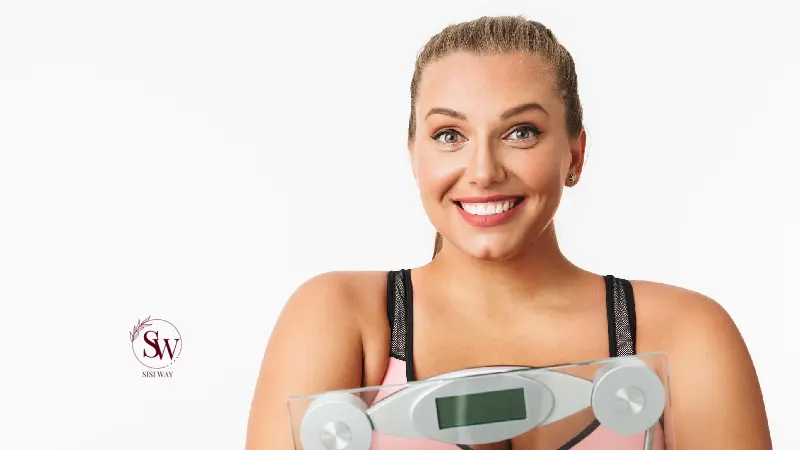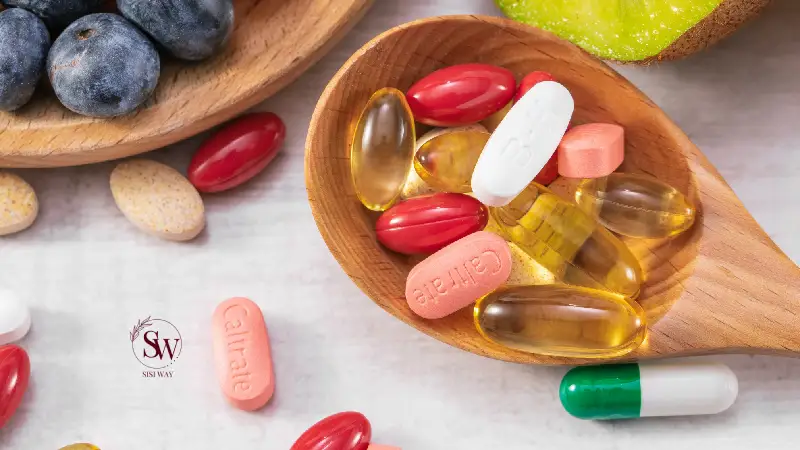How to Boost Fertility in Your 30s?

How to Boost Fertility in your 30s Naturally?
As many individuals choose to start families later in life, understanding how to optimize fertility becomes increasingly important. The 30s can be a critical period for fertility, as both men and women may experience age-related changes that can affect their reproductive capabilities. However, there are proactive steps you can take to boost fertility in your 30s and increase the chances of conception. In this article of sisiway, we will explore various strategies and lifestyle modifications that can support your reproductive health during this stage of life.

-
Prioritize a Healthy Lifestyle:
Prioritizing a healthy lifestyle is essential when it comes to boosting fertility in your 30s. A balanced diet that includes a variety of nutrient-rich foods such as fruits, vegetables, whole grains, lean proteins, and healthy fats can provide the necessary vitamins and minerals for reproductive health. It’s important to stay hydrated and limit the consumption of caffeine and alcohol, as these substances can negatively impact fertility. Regular exercise, including both aerobic activities and strength training, can help regulate hormone levels, improve circulation, and promote overall well-being.
Additionally, managing stress is crucial for fertility. High levels of stress can disrupt hormonal balance and interfere with reproductive function. Incorporating stress management techniques such as meditation, deep breathing exercises, yoga, or engaging in activities that bring joy and relaxation can help reduce stress levels. Getting enough sleep is also vital for hormonal regulation and overall health. By prioritizing a healthy lifestyle and managing stress, you can create a supportive environment for fertility and increase your chances of conceiving in your 30s. Read the article “How to Manage Stress and Anxiety” for more in-depth details on controlling stress.

In conclusion, prioritizing a healthy lifestyle is a key factor in boosting fertility during your 30s. By adopting a well-balanced diet, engaging in regular exercise, managing stress, and getting enough sleep, you can optimize your reproductive health and increase the likelihood of successful conception. Remember that every individual’s fertility journey is unique, and seeking guidance from healthcare professionals can provide personalized advice and support tailored to your specific needs. Embrace a healthy lifestyle and make choices that support your overall well-being, setting the stage for a healthy and fulfilling journey towards parenthood.
-
Understand Your Menstrual Cycle:
Understanding your menstrual cycle is a crucial aspect of boosting fertility in your 30s. By tracking your menstrual cycles, you can identify the timing of ovulation, which is the most fertile period. In fact If you have sufficient knowledge about your menstrual cycle, you will understand well when a woman is most fertile. Several methods can help you determine when ovulation occurs, such as tracking basal body temperature, using ovulation predictor kits, or monitoring changes in cervical mucus. By having intercourse during this fertile window, you can maximize your chances of conception. Understanding your menstrual cycle also helps you identify any irregularities or potential issues that may affect fertility. If you notice any irregularities or have concerns, it’s essential to consult with a healthcare professional for further evaluation and guidance.
In addition to understanding your menstrual cycle, it’s beneficial to be aware of the factors that can influence fertility in your 30s. Age-related changes can affect both men and women during this period. Women may experience a decline in ovarian reserve and quality of eggs, making it more challenging to conceive. Men may experience a decrease in sperm count, motility, and overall reproductive function. Understanding these age-related changes can help you make informed decisions and seek appropriate medical interventions if needed. By being proactive and staying informed, you can navigate the fertility journey in your 30s with greater confidence and increase your chances of achieving your desired outcome.

In conclusion, understanding your menstrual cycle and the factors that influence fertility in your 30s is essential for boosting your chances of conception. By tracking your cycles, identifying ovulation, and having intercourse during the most fertile period, you can optimize your chances of getting pregnant. Additionally, being aware of age-related changes and seeking appropriate medical guidance can help you make informed decisions and take necessary steps to support your fertility. Remember that every individual’s fertility journey is unique, and it’s important to consult with healthcare professionals for personalized advice and support along the way.
-
Maintain a Healthy Weight:
Maintaining a healthy weight is a significant factor in boosting fertility during your 30s. Both being overweight and underweight can negatively impact reproductive health. Excess body fat can disrupt hormonal balance and lead to irregular menstrual cycles, ovulation problems, and decreased fertility. On the other hand, being underweight can cause hormonal imbalances that can affect ovulation and menstrual regularity. To maintain a healthy weight, focus on a balanced diet that includes nutrient-rich foods and appropriate portion sizes. Engaging in regular physical activity can also contribute to weight management and promote overall well-being. Consulting with a healthcare professional or a registered dietitian can provide personalized guidance tailored to your specific needs.

In addition to the direct impact on fertility, maintaining a healthy weight also plays a role in the success of fertility treatments if they become necessary. Some fertility treatments, such as in vitro fertilization (IVF), may have better outcomes for individuals within a healthy weight range. Achieving and maintaining a healthy weight can positively impact hormonal balance, egg quality, and overall reproductive function. By prioritizing a healthy weight through proper nutrition and regular exercise, you can optimize your fertility potential and increase the chances of successful conception in your 30s.
In conclusion, maintaining a healthy weight is crucial for boosting fertility in your 30s. By managing your weight through a balanced diet and regular physical activity, you can support hormonal balance, menstrual regularity, and overall reproductive health. Not only does a healthy weight increase the likelihood of natural conception, but it can also improve the success rates of fertility treatments if needed. Remember that every individual’s journey is unique, and it’s important to seek guidance from healthcare professionals for personalized advice and support in maintaining a healthy weight and optimizing fertility in your 30s.
Also read: Women’s Diet for Abs
-
Seek Regular Medical Check-ups:
Seeking regular medical check-ups is an important aspect of boosting fertility in your 30s. Regular visits with a healthcare provider who specializes in reproductive health can help monitor your overall reproductive well-being. During these check-ups, your healthcare provider can assess your hormone levels, evaluate ovarian reserve, and identify any underlying conditions that may impact fertility, such as polycystic ovary syndrome (PCOS) or endometriosis. Early detection and treatment of these conditions can significantly improve your chances of conceiving. Your healthcare provider can also offer guidance on lifestyle modifications, recommend appropriate fertility tests, and provide insights into potential treatment options if needed.
In addition to routine check-ups, it’s essential to seek medical advice if you have been trying to conceive for an extended period without success. Infertility is defined as the inability to conceive after one year of regular unprotected intercourse for individuals under 35 years old, or after six months for individuals 35 years and older. Seeking fertility evaluation and consultation can help identify any underlying factors contributing to infertility and provide guidance on appropriate interventions or treatments. Working closely with a reproductive specialist or fertility clinic can offer specialized care, personalized treatment plans, and support throughout your fertility journey in your 30s.

In conclusion, seeking regular medical check-ups and fertility evaluations is crucial for boosting fertility in your 30s. These visits allow healthcare providers to assess your reproductive health, identify any potential issues, and offer appropriate interventions or treatments. Whether it’s routine check-ups or seeking specialized fertility care, working closely with healthcare professionals can provide valuable insights, personalized guidance, and support along your fertility journey. Remember that every individual’s fertility journey is unique, and seeking medical advice is essential for personalized care tailored to your specific needs.
-
Consider Supplements:
Considering supplements can be a helpful strategy for boosting fertility in your 30s. While it’s important to prioritize a healthy diet as the primary source of nutrients, certain supplements may support reproductive health. Folic acid or prenatal vitamins containing folic acid are crucial for women looking to conceive, as they reduce the risk of neural tube defects in the developing fetus. Other supplements that may have positive effects on fertility include Coenzyme Q10, which can improve egg quality, and omega-3 fatty acids, which can support hormonal balance. However, it’s essential to consult with a healthcare professional before starting any new supplements. They can evaluate your specific needs, provide recommendations based on your medical history, and ensure that the supplements are safe and appropriate for you.
In addition to supplements, it’s important to focus on a well-rounded approach to fertility enhancement. Supplements should not be relied upon as a standalone solution, but rather used in conjunction with other lifestyle modifications and medical guidance. It’s crucial to maintain a healthy lifestyle, understand your menstrual cycle, manage stress levels, maintain a healthy weight, and seek regular medical check-ups. By adopting a comprehensive approach that includes supplements as part of a larger strategy, you can optimize your fertility potential and increase the chances of successful conception in your 30s.

FAQ
- What lifestyle changes can I make to boost fertility in my 30s?
Answer: Prioritizing a healthy lifestyle is key. Focus on maintaining a balanced diet, engaging in regular exercise, managing stress levels, getting enough sleep, and avoiding excessive alcohol and caffeine consumption. These lifestyle modifications can promote hormonal balance, improve overall reproductive health, and increase your chances of conceiving.
- Should I consider taking supplements to boost fertility in my 30s?
Answer: While supplements may be beneficial, it’s important to consult with a healthcare professional before starting any new supplements. They can evaluate your specific needs and recommend appropriate supplements, such as folic acid or prenatal vitamins, Coenzyme Q10, or omega-3 fatty acids. However, supplements should not replace a healthy diet and lifestyle but rather be used as a complementary measure.
- When should I seek medical help for fertility concerns in my 30s?
Answer: If you have been actively trying to conceive for a year without success and you’re under 35 years old, or for six months if you’re 35 years or older, it’s recommended to seek medical help. A reproductive specialist can conduct fertility evaluations, assess any underlying factors, and provide guidance on appropriate interventions or treatments based on your individual circumstances. It’s important to remember that everyone’s fertility journey is unique, and seeking medical advice can provide personalized care and support.
Conclusion:
While fertility may decline with age, there are several proactive steps you can take to boost fertility in your 30s. By adopting a healthy lifestyle, understanding your menstrual cycle, maintaining a healthy weight, seeking regular medical check-ups, and considering appropriate supplements, you can increase your chances of conceiving. Remember, every individual’s fertility journey is unique, and seeking guidance from healthcare professionals can provide personalized advice and support. Embrace these strategies, stay positive, and be patient as you embark on this exciting chapter of starting or expanding your family.
Read more: Every Thing about Ovarian Reserve



